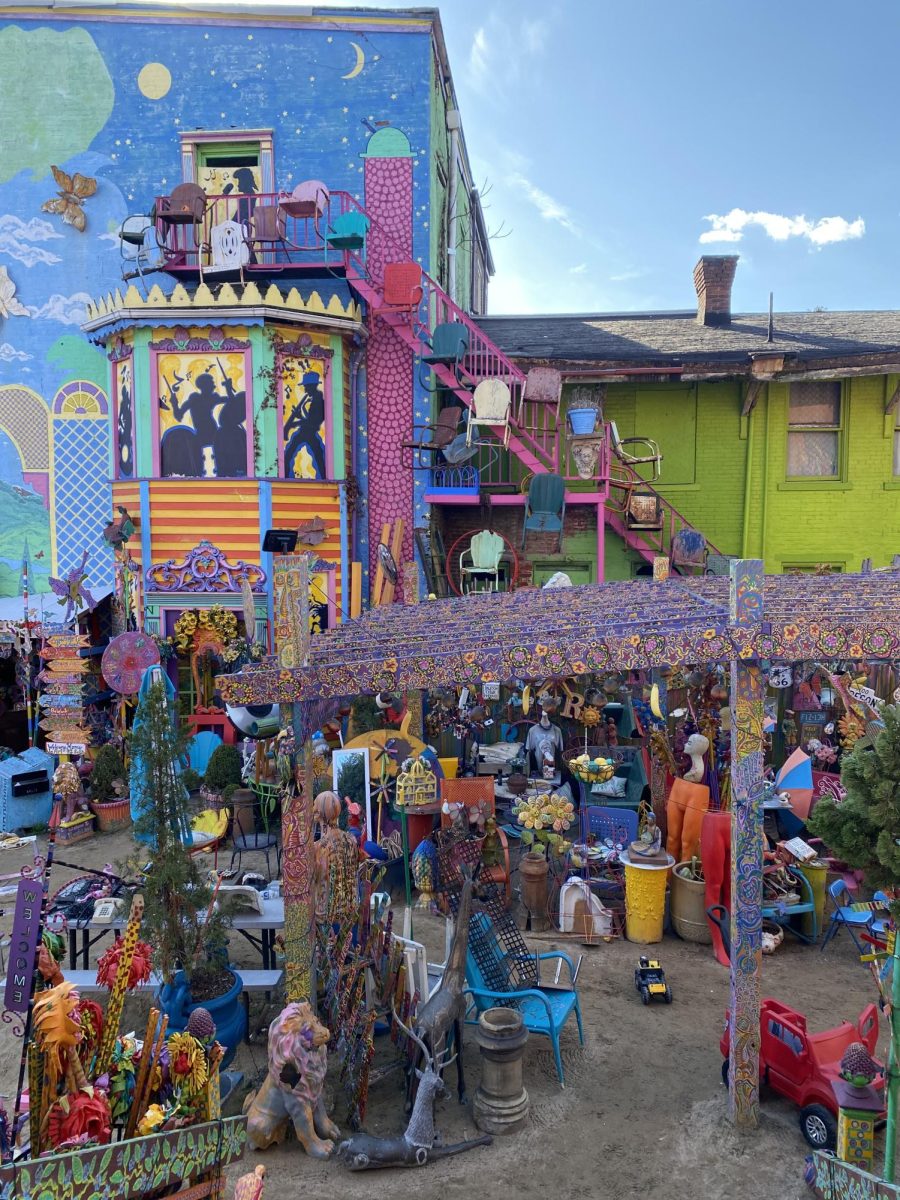The One Book One Community Read program, run by CCAC, has been fostering adult literacy and social conversation for more than a decade. The students, faculty, and community partners are encouraged to read a serious and well-regarded memoir every year. This book is meant to spark discussion and inspire fresh thinking which is then meant to lead to provoking conversations about societal issues that have been ignored by the general population.
Professors Carmen Livingston and Aaron Hoffman kicked off the event by discussing the concept of “One Book Community Read.” The event was established in order to engage the community and give them something to commonly discuss. This year’s book by American writer Sarah Smarsh, is a non-fiction book from 2018 titled Heartland: A Memoir of Working Hard and Being Broke in the Richest Country on Earth.
The book is an intergenerational story about her upbringing in which Smarsh discusses events from her life and the lives of her relatives in the context of the cycles of poverty and social classes in the state of Kansas. “Our committee chose this book because of the discussion of issues prevalent today, even here in Pittsburgh, despite the book being set in Kansas.” Professor Livingston stated, during her opening speech to the attendees of the community read kickoff event hosted on September 25th at CCAC Northside. The memoir is a tribute to the working class, brings up many issues that are prevalent today, and shares insights on country life in America. Smarsh explores a range of socioeconomic themes, such as working-class hardships, class division, and poverty. She also discusses gender-related themes, portraying an individual perspective on what it’s like to be a woman in a working-class community. The hope is that readers gain insight about the larger socioeconomic challenges afflicting the “Heartland” of the United States.
CCAC students who will collaborate with the community partners: Carnegie Library of Homestead, Rivers of Steel, and SLB Radio, to name a few. These groups will help develop student projects and programs throughout the academic year. Professors at CCAC plan to use the book to shape the curriculum, ensuring that students are aware of the prevalent issues not just in our country but also in our individual communities. In addition, the book also explores the complex relationships between class, gender, and societal expectations. These are all related in some way, and by utilizing education and technology students can start to address some of the problems that result from these factors. This book is a fantastic resource for educating people about such issues so that we can talk about solutions.
Many people today see rural and urban communities as two separate systems– almost as if they are two different worlds entirely. As an Indian American girl, I have a foot in both settings. I grew up in Pittsburgh, a mainstream American city, but I also have experienced the rural way of life in Karnataka, India. Despite the USA and India being on opposite sides of the planet, there are still many similarities I can draw between the two countries. In both, for instance, the differences between them seem to be attributed to the same factors, whether it’s wealth, technology, or resistance to change. These disparities are rooted in the morals, traditions, and perspectives of those people who live such vastly different lives. In the end, there are three key factors that change the landscape when it comes to urbanism and ruralism: technology, influence, and society. More often than not in the city, everything is a lot more progressive, advanced, and open to change. On the other hand, in rural areas, it takes time for changes to make their way into the lives of people who live in the countryside, so these areas tend to be of a more conservative nature. All of the differences between country life versus city life reflect Smarsh’s experience growing up in rural America and some of the obstacles she faced on her journey.
The kickoff event certainly inspired me to read Smarsh’s memoir. All of the speakers presented phenomenal speeches with topics ranging from the experience of women in rural areas to “The City of Champions (Pittsburgh, of course!).” I’m curious to read about how Sarah Smarsh overcame the cycles of poverty she grew up in, especially because my dad accomplished a similar feat. Like Sarah Smarsh, he also grew up working on a farm in a rural region and went on to surpass the limits of his upbringing. He’s now a scientist working on cancer, transplant, and immunogenetics research in the United States. Because of my dad’s story, I’ve been inspired to learn about Smarsh’s experience and perspective. I’m looking forward to the discussion that will arise as a result of this year’s One Book One Community program because it’s important for everyone to be aware of the issues explored within the memoir and how it relates to their everyday lives. By reading this book, people gain a fresh viewpoint of the world we live in, different from the world they thought they knew.
Categories:
Heartland
Swati Mylarappa, Phoenix Contributor
November 20, 2023
Story continues below advertisement
0




